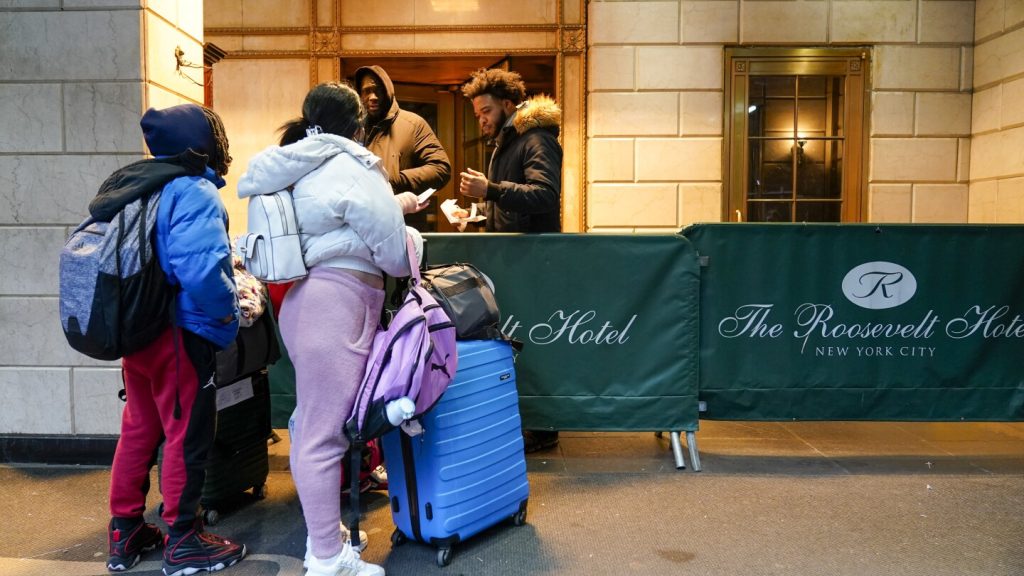The city of New York has been facing issues with its policy imposing a 60-day limit on shelter stays for migrant families, according to a recent audit by the city’s comptroller. The policy, rolled out to ease pressure on the strained shelter system, exempted pregnant women in their last trimester. However, this exemption was not properly communicated to agencies, shelter providers, or the women themselves, as there was no written policy in place. Families were allowed to reapply for shelter beds, but concerns were raised about kids being placed far from their schools.
Despite the promise to keep families near their children’s schools, the audit found that educators and families did not receive this courtesy. At least three families from an elementary school in Brooklyn were offered placements in other boroughs, causing them to leave the shelter system prematurely. The comptroller urged Mayor Eric Adams to suspend the 60-day rule until the end of the school semester. The city has not systematically documented housing, health, or educational outcomes for immigrants leaving shelters, and only tracked whether immigrants stayed in the system or not.
In response to the audit, the mayor’s office defended the 60-day eviction notices as a necessary tool to nudge migrants out of shelters. The spokesperson emphasized that nearly half of families and more than 65% of all migrants have moved out of the system without any family with children being forced to sleep on the streets. The city faces legal obligations to provide shelter to all who ask for it, and U.S. schools are obligated to enroll immigrant students who are minors, regardless of their immigration status. The city called for federal funding to address the refugee resettlement programs.
Immigrant advocates expressed the challenges they face in negotiating with shelter officials to allow families to stay in their neighborhoods. Shuffling families between shelters is a constant issue, with council members and staff handling numerous cases each day. Schools benefit from immigrant students as they bring additional funding, and homeless students often find a good fit in these schools due to diverse language offerings. Council member Gale Brewer highlighted the informal agreement between city officials and advocates to help families remain in their shelters or get moved nearby.
The audit shed light on the lack of proper communication and documentation in the implementation of the city’s policy regarding migrant families in shelters. The challenges faced by families, educators, and advocates in navigating the shelter system point to the need for a more comprehensive and inclusive approach. With the ongoing debate about federal funding for refugee programs, the city continues to grapple with providing support to the thousands of immigrants in its shelter system. As calls for a national solution to the humanitarian crisis grow louder, the city must work towards ensuring the well-being and stability of migrant families in need of shelter and support.


